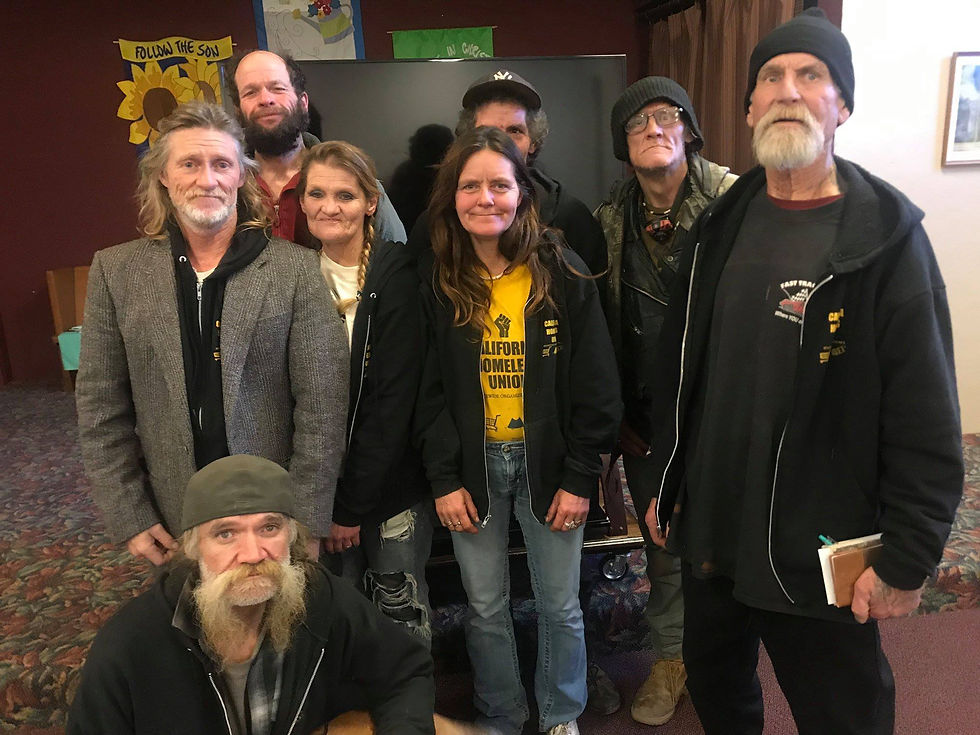The Spirit Speaking to the Church
- Kevin Phillips
- Jul 2, 2015
- 4 min read

I am regularly asked what it means to listen to the Holy Spirit.
When my dialogue partners ask me a question, I like to give an answer. The answers are not always easy, and not alway brief. An easy and brief answer to the question of how I justify my position is "just because", or perhaps, "because its biblical," or worse, "because I am right and you are wrong."
So for my friends who asked, here is my take of the Spirit Speaking to the Church.
The Continuum of Being
See the accompanying image. The vertical line in this model represents what I call "the Continuum of Being". At one pole is the individual, at the other, the community. What distinguishes the individual and the community with respect to this continuum?
The individual is limited in her perspective. She sees the world through one set of eyes. She processes her experience based on her personal history. While limited in her perspective, the individual is however capable of action. The individual has the power to act.
A community on the other hand, is an association of many individuals. The community therefore, "sees" the world through many eyes. Community processes experience on the basis of many people's personal history. Every new person who joins the community brings a new perspective that immeasurably enriches the communal point of view.
However unlike the individual, the community has no power to act. When the community "acts", it does so in one of two ways. One individual acts in the name of, or with the authority of, the community as a whole. Or, the action of the community is the sum of each individual action by each person who constitutes the community. That is, in a community of ten, ten individuals agree to act together with a common intention.
Some people are more comfortable acting independently of others, and to perceive the world without reference to others. Other people, are more comfortable acting in step with those around them and adopting the perspective of others. They very rarely make a decision without consulting the community.
One may position a specific person along the Continuum of Being to the degree that he or she is more comfortable acting independently or in association with others.
The Continuum of Meaning
The horizontal line in this model represents what I call "the Continuum of Meaning".
At either pole are sacred texts and experience. At end of the Continuum of Meaning are Sacred texts. These represent a legacy of meaning expressed by earlier generations. In the case of the Bible, the text constitutes what people of faith considered to be the word of God. I am among those who embrace this sacred text as my primary authority of meaning.
Other people may use use other Sacred Texts, either consciously or unconsciously. A person from the Brahmin Caste in India may use The Bhagadavida as sacred text. A Wall Street Investment Banker may not use an explicit ancient text at all, but may use an implicit set of metaphors and narratives that justify the accumulation of capital as her primary authority of meaning. Someone may use the narratives of science as a primary authority of meaning.
People come to understand their place in the world with reference to their sacred text. It provides the primary metaphors, the stock narratives, and the existential context that frames the present moment within a broader, transcendent, point of reference.
At the opposite and of this polarity is Experience. At the extreme end of the Continuum of Meaning experience is chaos and has absolutely no meaning. All we know is the unstructured swirl of light, shadow and movement human beings perceive prior to the brain processing unformed sense data into coherent patterns that enable us to engage the world. That is, Experience only takes on meaning as we associate it with cultural forms (including language and images) we begin to adopt from birth.
The formation of Experience as a function of culture grounds us in our historic moment. It is empowering -- insofar as it enables us to act meaningfully in the world. It is also limiting -- insofar as it blinds us to alternative ways of making sense of the world.
Some people are more comfortable with reference to Sacred Texts. They adopt the meaning of the text as interpreted and transmitted by their culture in their unique moment in time. These people embrace their legacy of meaning. Not that these people ignore Experience. They simply subordinate Experience to Sacred Text. That is, they conform Experience to the received tradition.
Other people are more comfortable with reference to Experience. They explore and are open to new forms of meaning. This is the vocation of the artist. A scientist functions as an artist using the data of experimentation as her palette and her canvass. Charles Darwin, for example, created a new form of meaning in the Theory of Evolution. Albert Einstein, likewise created a new form of meaning in the Theory of Relativity.
Just as one may position a specific person along the Continuum of Being to the degree that he or she is more comfortable acting independently or in association with others, one may position a specific person along the Continuum of Meaning to the degree that he or she is more comfortable with a legacy of meaning, or the discovery of new forms of meaning. We listen to the Spirit best when we attend to our own experience in conversation with others.





Comments